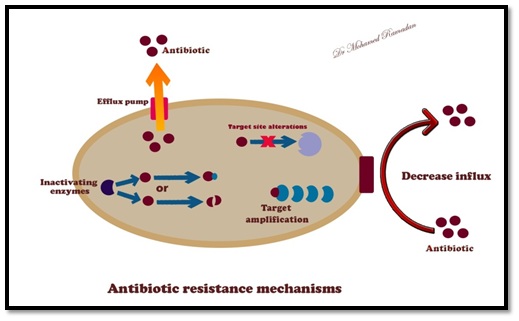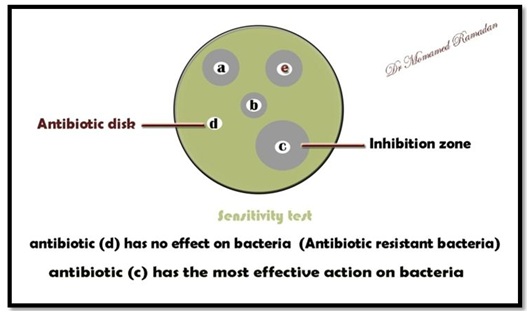
Antibiotics and Poultry Production
*Corresponding Author(s):
Mohamed RamadanPoultry Specialist, Veterinarian, Beni-Suef University, Beni Suef, Egypt
Tel:+20 1154779365,
Email:mohamed.ramadan201065@yahoo.com
Abstract
Antibiotics are not used only for poultry diseases treatment, but also used in some areas especially developing countries as a growth promoter.
Although antibiotics have advantage of treatment poultry diseases it also have disadvantages include inhibition of immune system of birds caused by some types of antibiotics and some of them have an bad effect on the normal flora found in the digestive system of birds in addition to their effects on the kidney and liver resulting from repeated use and appearance of antibiotic-resistant bacteria resulting from excessive, misuse without advice from veterinarians or consultants.
Keywords
INTRODUCTION
Although antibiotics have advantage of treatment poultry diseases it also have disadvantages include inhibition of immune system of birds caused by some types of antibiotics and some of them have an bad effect on the normal flora found in the digestive system of birds in addition to their effects on the kidney and liver resulting from repeated use and appearance of antibiotic-resistant bacteria resulting from excessive, misuse without advice from veterinarians or consultants.

One of antibiotics disadvantages their bad effect on the public health and the emergence of some common bacteria resistant to antibiotics, which led to the difficulty of treatment due to residues found in poultry meat as producers not follow withdrawal.
A growing number of infections - such as pneumonia, tuberculosis, gonorrhoea, and salmonellosis - are becoming harder to treat as the antibiotics used to treat them become less effective.
Antibiotic resistance leads to longer hospital stays, higher medical costs and increased mortality so many countries all over the world have banned or restricted the inclusion of antibiotics in animal diets for growth promotion purposes.
The World Organization for Animal Health also has developed a set of international standards for animal antibiotic use to help protect the effectiveness of antibiotics used in veterinary medicine. Europe is the first major market to restrict the use of antibiotics in meat and poultry production.
Poultry producers can decrease their use of antibiotic by following biosecurity rules in the farms, avoid stress factors that affect the immune system of birds as well as active immunization against diseases by vaccination and only healthy birds are vaccinated.

As good biosecurity prevent entrance of pathogenic microorganisms, it should be followed at all times, not just during a disease outbreak.
Perfect biosecurity helps keep out exotic poultry diseases such as avian influenza and Newcastle Disease, reduces the risk of zoonotic diseases such as salmonella, limits the occurrence and spread of diseases, public health, cuts costs of disease treatment; and reduces losses, which could improve farm profitability, improves overall flock health.
To do a proper biosecurity; following all in-all out system, the site should be fenced with a controlled entry point, Visitors and their vehicles should be limited and as far as possible kept away from poultry buildings and pastures, Protective clothing and footwear should be removed and either cleansed and disinfected, laundered or disposed of after use, active rodent and pest control system and hygienic Disposal of Damaged eggs, dead birds, litter and manure that may carry disease.
Producers mustn’t use antibiotics without permission of veterinarian or consultant, in case of a disease outbreak; follow the instructions of the veterinarians who determine the most effective treatment and this by the help of sensitivity test that should be made in a specialized veterinary laboratory.

Citation: Ramadan M (2019) Antibiotics and Poultry Production. J Anim Res Vet Sci 3: 014.
Copyright: © 2019 Mohamed Ramadan, et al. This is an open-access article distributed under the terms of the Creative Commons Attribution License, which permits unrestricted use, distribution, and reproduction in any medium, provided the original author and source are credited.

